#LESSON II.
Text
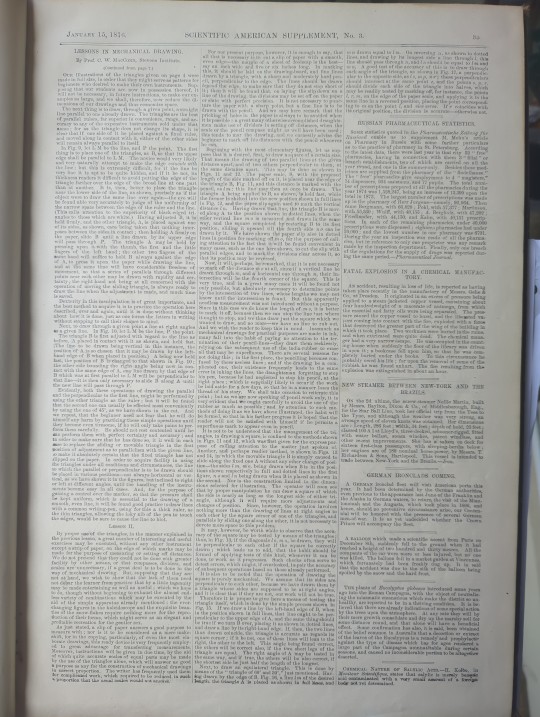
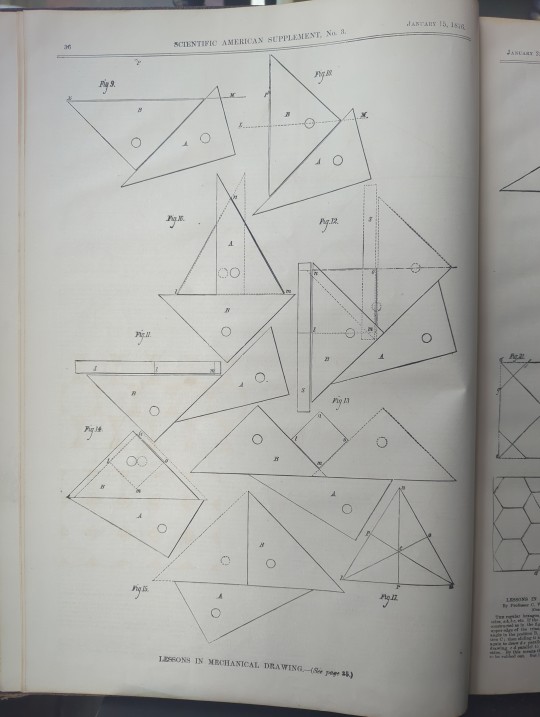
15 January 1876
#18760115#Russian Pharmaceutical Statistics#Fatal Explosion in a Chemical Manufactory#New Steamer Between New-York and the Brazils#German Ironclads Coming#A Balloon#The plants of Eucalyptus globosus (terraforming article)#Chemical Nature of Salilyc Acid#LESSON II.#Scientific American#Lessons in Mechanical Drawing
0 notes
Text
Shōgun Historical Shallow-Dive: the Final Part - The Samurai Were Assholes, When 'Accuracy' Isn't Accurate, Beautiful Art, and Where to From Here
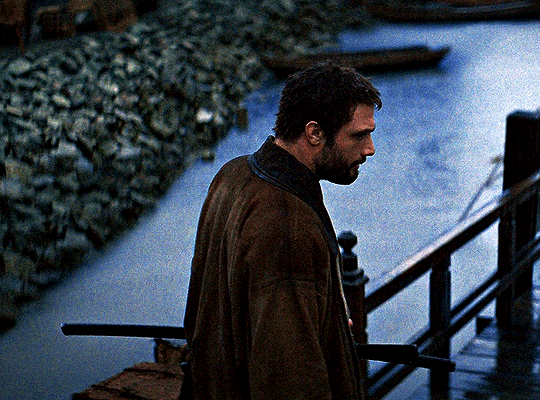
Final part. There is an enormous cancer attached to the samurai mythos and James Clavell's orientalism that I need to address. Well, I want to, anyway. In acknowledging how great the 2024 adaptation of Shōgun is, it's important to engage with the fact that it's fiction, and that much of its marketed authenticity is fake. That doesn't take away from it being an excellent work of fiction, but it is a very important distinction to me.
If you want to engage with the cool 'honourable men with swords' trope without thinking any deeper, navigate away now. Beyond here, there are monsters - literal and figurative. If you're interested in how different forms of media are used to manufacture consent and shape national identity, please bear with me.
I think the makers of 2024's Shōgun have done a fantastic job. But there is one underlying problem they never fully wrestled with. It's one that Hiroyuki Sanada, the leading man and face of the production team, is enthusiastically supportive of. And with the recent announcement of Season 2, it's likely to return. You may disagree, but to me, ignoring this dishonours the millions of people who were killed or brutalised by either the samurai class, or people in the 20th century inspired by a constructed idea of them.
Why are we drawn to the samurai?
A pretty badly sourced, but wildly popular history podcast contends that 'The Japanese are just like everybody else, only more so.' I saw a post on here that tried to make the assertion that the show's John Blackthorne would have been exposed to as much violence as he saw in Japan, and wouldn't have found it abnormal.
This is incorrect. Obviously 16th and 17th century Europe were violent places, but they contained violence familiar to Europeans through their cultural lens. Why am I confidently asserting this? We have hundreds of letters, journals and reports from Spaniards, Portuguese, Dutch and English expressing absolute horror about what they encountered. Testing swords on peasants was becoming so common that it would eventually become the law of the land. Crucifixion was enacted as a punishment for Christians - first by the Taiko, then by the Tokugawa shogunate - for irony's sake.
Before the end of the feudal period, battles would end with the taking of heads for washing and display. Depending on who was viewing them, this was either to honour them, or to gloat: 'I'm alive, you're dead.' These things were ritualised to the point of being codified when real-life Toranaga took control. Seppuku started as a cultural meme and ended up being the enforced punishment for any minor mistake for the 260 years the ruling samurai class acted as the nation's bureaucracy. It got more and more ritualised and flowery the more it got divorced from its origin: men being ordered by other men to kill themselves during a period of chaotic warfare. I've read accounts of samurai 'warriors' during the Edo period committing seppuku for being late for work. Not life-and-death warrior work - after Sekigahara, they were just book-keepers. They had desk jobs.
Since Europe's contact with Japan, the samurai myth has fascinated and appalled in equal measure. As time has gone on, the fascination has gone up and the horror has been dialled down. This is not an accident. This isn't just a change in the rest of the world's perception of the samurai. This is the result of approximately 120 years of Japanese government policies. Successive governments - nationalist, military authoritarian, and post-war democratic - began to lionize the samurai as the perfect warrior ideal, and sanitize the history of their origin and their heydey (the period Shōgun covers). It erases the fact that almost all of the fighting of the glorious samurai Sengoku Jidai was done by peasant ashigaru (levies), who had no choice.
It is important to never forget why this was done initially: to form an imagined-historical ideal of a fighting culture. An imagined fighting culture that Japanese invasion forces could emulate to take colonies and subdue foreign populations in WWI, and, much more brutally, in WWII. James Clavell came into contact with it as a Japanese Prisoner of War.
He just didn't have access to the long view, or he didn't care.
The Original Novel - How One Ayn Rand Fan Introduced Japan to America
There's a reason why 1975's Shogun novel contains so many historical anachronisms. James Clavell bought into a bunch of state-sanctioned lies, unachored in history, about the warring states period, the concept of bushido (manufactured after the samurai had stopped fighting), and the samurai class's role in Japanese history.
For the novel, I could go into great depth, but there are three things that stand out.
Never let the truth get in the way of a good story. He's a novelist, and he did what he liked. But Clavell's novel was groundbreaking in the 70's because it was sold as a lightly-fictionalised history of Japan. The unfortunate fact is the official version that was being taught at the time (and now) is horseshit, and used for far-right wing authoritarian/nationalist political projects. The Three Unifiers and the 'honour of the samurai' magnates at the time is a neat package to tell kids and adults, but it was manufactured by an early-20th century Japanese Imperial Government trying to harness nationalism for building up a war-ready population. Any slightly critical reading of the primary sources shows the samurai to be just like any ruling class - brutal, venal, self-interested, and horrifically cruel. Even to their contemporary warrior elites in Korea and China.
Fake history as propraganda. Clavell swallowed and regurgitated the 'death before dishonour', 'loyalty to the cause above all else', 'it's all for the Realm' messages that were deployed to justify Imperial Japanese Army Class-A war crimes during the war in the Pacific and the Creation of the Greater East Asian Co-Properity Sphere. This retroactive samurai ethos was used in the late Meiji restoration and early 20th century nationalist-military governments to radicalise young Japanese men into being willing to die for nothing, and kill without restraint. The best book on this is An Introduction to Japanese Society by Sugimoto Yoshio, but there is a vast corpus of scholarship to back it up.
Clavell's orientalism strays into outright racism. Despite the novel Shōgun undercutting John Blackthorne as a white savior in its final pages - showing him as just a pawn in the game - Clavell's politics come into play in every Asia Saga novel. A white man dominates an Asian culture through the power of capitalism. This is orthagonal to points 1 and 2, but Clavell was a devotee of Ayn Rand. There's a reason his protagonists all appear cut from the same cloth. They thrust their way into an unfamiliar society, they use their knowledge of trade and mercantilism to heroically save the day, they are remarked upon by the Asian characters as braver and stronger, and they are irresistible to the - mostly simpering, extremely submissive - caricatures of Asian women in his novels. Call it a product of its times or a product of Clavell's beliefs, I still find it repulsive. Clavell invents (nearly from whole cloth, actually) the idea that samurai find money repulsive and distasteful, and his Blackthorne shows them the power of commerce and markets. Plus there are numerous other stereotypes (Blackthorne's massive dick! Japanese men have tiny penises! Everyone gets naked and bathes together because they're so sexually free! White guys are automatically cool over there!) that have fuelled the fantasies of generations of non-Japanese men, usually white: Clavell's primary audience of 'dad history' buffs.
2024's Shōgun, as a television adaptation, did a far better job in almost every respect
But the show did much better, right? Yes. Unquestionably. It was an incredible achievement in bringing forward a tired, stereotypical story to add new themes of cultural encounter, questioning one's place in the broader world, and killing your ego. In many ways, the show was the antithesis to Clavell's thesis.
It drastically reigned in the anachronistic, ahistorical referencees to 'bushido' and 'samurai honor', and showed the ruling class of Japan in 1600 much more accurately. John Blackthorne (William Adams) was shown to be an extraordinary person, but he wasn't central to the outcome of the Eastern Army-Western Army civil war. There aren't scenes of him being the best lover every woman he encounters in Japan has ever had (if you haven't read the book, this is not an exaggeration). He doesn't teach Japanese warriors how to use matchlock rifles, which they had been doing for two hundred years. He doesn't change the outcome of enormous events with his thrusting, self-confident individualism. In 2024's Shōgun, Blackthorne is much like his historical counterpart. He was there for fascinating events, but not central. He wasn't teaching Japanese people basic concepts like how to make money or how to make war.
On fake history - the manufactured samurai mythos - it improved on the novel, but didn't overcome the central problems. In many ways, I can't blame the showrunners. Many of the central lies (and they are deliberate lies) constructed around the concept of samurai are hallmarks of the genre. But it's still important to me to notice when it's happening - even while enjoying some of the tropes - without passively accepting it.
'Authenticity' to a precisely manufactured story, not to history
There's a core problem surrounding the promotion and manufactured discussion surrounding 2024's Shōgun. I think it's a disconnect between the creative and marketing teams, but it came up again and again in advertising and promotion for the show: 'It's authentic. It's as real as possible.'
I've only seen this brought up in one article, Shōgun Has a Japanese-Superiority Complex, by Ryu Spaeth:
'The show also valorizes a supreme military power that is tempered by the pursuit of beauty and the highest of cultures, as if that might be a formula for peace. Shōgun displays these two extremes of the Japanese self, the savagery and the refinement, but seems wholly unaware that there may be a connection between them, that the exquisite sensibility Japan is famous for may flow from, and be a mask for, its many uses of atrocious domination.'
Here we come to authenticity.
'The publicity surrounding the series has focused on its fidelity to authenticity: multiple rounds of translation to give the dialogue a “classical” feel; fastidious attention to how katana swords should be slung, how women of the nobility should fold their knees when they sit, how kimonos should be colored and styled; and, crucially, a decentralization of the narrative so that it’s not dominated by the character John Blackthorne.'
It's undeniable that the 2024 production spent enormous amounts of energy on authenticity. But authenticity to what? To traditional depictions of samurai in Japanese media, not to history itself. The experts hired for gestures, movement, costumes, buildings, and every other aspect of the show were experts with decades in experience making Japanese historical dramas 'look right', not experts in Japanese history. But this appeal to 'Japanese authenticity' was made in almost every piece of promotional material.
The show had only one historical advisor on staff, and he was Dutch. The numerous Japanese consultants, experts and specialists brought on board (talked about at length in the show's marketing and behind the scenes) were there to assist with making an accurate Japanese jidaigeki. It's the difference between hiring an experienced BBC period drama consultant, and a historian specialising in the Regency. One knows how to make things look 'right' to a British audience. The other knows what actually happened.
That's fine, but a critical viewing of the show needs to engage with this. It's a stylistically accurate Japanese period drama. It is not an accurate telling of Japanese history around the unification of Japan. If it was, the horses would be the size of ponies, there would be far more malnourished and brutalised peasants, the word samurai would have far less importance as it wasn't yet a rigidly enforced caste, seppuku wouldn't yet be ritualised and performed with as much frequency, and Toranaga - Tokugawa - would be a famously corpulently obese man, pounding the saddle of his horse in frustration at minor setbacks, as he was in history.
The noble picture of restraint, patience, refinement and honour presented by Hiroyuki Sanada as Toranaga/Tokugawa is historical sanitation at its most extreme. Despite being Sanada's personal hero, Tokugawa Ieyasu was a brutal warlord (even for the standards of the time), and he committed acts of horrific cruelty. He ordered many more after gaining ultimate power. Think a miniseries about the Founding Fathers of the United States that doesn't touch upon slavery - I'm sure there have been plenty.
The final myth that 2024's Shōgun leaves us with is that it took a man like Toranaga - Tokugawa Ieyasu - to bring peace to a land ripped assunder by chaos. This plays into 19th century notions of Great Man History, and is a neat story, but the consensus amongst historians is if it wasn't Tokugawa, it would have been some other cunt. In many cases, it very nearly was. His success was historical contingency, not 5D chess.
So how did this image get manufactured, to the point where the Japanese populace - by and large - believes it to be true? Very long story short: after a period of rapid modernisation, Japan embraced nationalism in the late 19th century. It was all the rage. Nationalism depends on a glorified past. The samurai (recently the pariahs of Japanese history) were repurposed as Japan's unique warrior heroes, and woven into state education. This was especially heated in the 1920s and 30s in the lead up to the invasion of Manchuria and Japan's war of aggression in the Pacific. Nationalism + militarism = the modern Japanese samurai myth, to prepare men to obey orders unquestioningly from a military dictatorship.
This persists in the postwar period. Every year since 1963, Japan's state broadcaster NHK commissions a historical drama - a Taiga Drama, where many of this show's actors got their starts - that manufactures and re-enforces the idea of samurai as noble, artful, honourable people. Read a book - read a Wikipedia article! - and you'll see that most of it stems from Tokugawa-shogunate era self-propaganda. It's much like the European re-interpretation of chivalry. In Europe's case, chivalry in actual history was a set of guidelines that allowed for the sanctioned mass-rape and murder of civilians, with a side of rules regarding the ransoming of nobles in scorched-earth military campaigns. In Japan's case, historical figures that regularly backstabbed each other, tortured rival warriors and their lessers, and inflicted horrific casualties on the peasants that they owned (we have a term for that) are cast as noble, honourable, dedicated servants of the Empire.
Why does this matter to me? Samurai movies and TV shows are just media, after all. The issue, for me, is that the actors, the producers - including Hiroyuki Sanada - passionately extoll 'accuracy' as if they genuinely believe they're telling history. They talk emotionally about bushido and its special place in Japanese society.
But the entire concept of bushido is a retroactive, post-conflict, samurai construction. Bushio is bullshit. Despite being spoken of as the central tenet of 2024's Shōgun by actors like Hiroyuki Sanada, Tadanobu Asano, and Tokuma Nishioka, it simply didn't exist at the time. It was made up after the advent of modern nationalism.
It was used to justify horrendous acts during the late Edo period, the Meiji restoration, and the years leading up to the conclusion of Japan's war of aggression in the Pacific. It's still used now by Japan's primarily right-wing government to deny war crimes and justify the horrors unleashed on Asia and the Pacific during World War II as some kind of noble warrior crusade. If you ever want your stomach turned, visit the museum attached to Yasukuni Shrine. It's a theme park dedicated to war crimes denial, linked intimately to Japan's imagined warrior past. Whether or not the production staff, cast, and marketing team of 2024's Shōgun knew they were engaging with a long line of ahistorical bullshit is unknown, but it is important.
It's also important to acknowledge that, having listened to many interviews with Rachel Kondo and Justin Marks, they were acutely aware that they weren't Japanese, to claim to be telling an authentically Japanese story would be wrong, and that all they could do was do their best to make an engaging work that plays on ideas of cultural encounter and letting go. I think the 'authenticity!' thing is mostly marketing, and judicious editing of what the creators and writers actually said in interviews.
So... you hate the show, then? What the hell is this all about?
No, I love the show. It's beautiful. But it's a beautiful artwork.
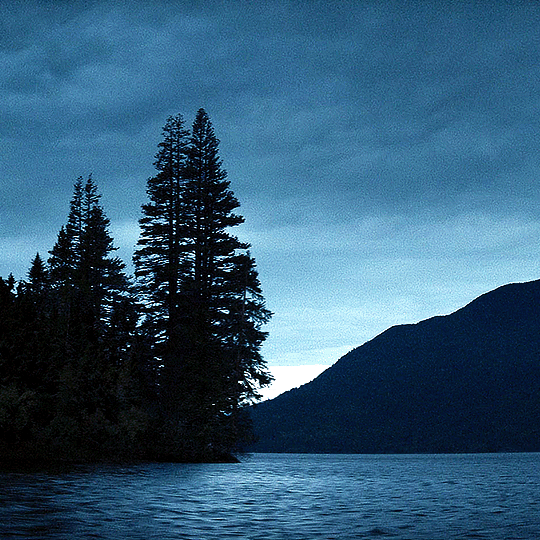
Just as the noh theatre in the show was a twisting of events within the show, so are all works of fiction that take inspiration from history. Some do it better than others. And on balance, in the show, Shōgun did it better than most. But so much of the marketing and the discussion of this adaptation has been on its accuracy. This has been by design - it was the strategy Disney adopted to market the show and give it a unique viewing proposition.
'This time, Shōgun is authentic!*
*an authentic Japanese period drama, but we won't mention that part.
And audiences have conflated that with what actually happened, as opposed to accuracy to a particular form of Japanese propaganda that has been honed over a century. This difference is crucial.
It doesn't detract from my enjoyment of it. Where I view James Clavell's novel as a horrid remnant of an orientalist, racist past, I believe the showrunners of 2024's Shōgun have updated that story to put Japanese characters front and centre, to decentralise the white protagonist to a more accurate place of observation and interest, and do their best to make a compelling subversion of the 'stranger in a strange land' tale.
But I don't want anyone who reads my words or has followed this series to think that the samurai were better than the armed thugs of any society. They weren't more noble, they weren't more honourable, they weren't more restrained. They just had 260 years in which they worked desk-jobs while wearing two swords to write stories about how glorious the good old days were, and how great people were.
Well... that's a bleak note to end on. Where to from here?
There are beautiful works of fiction that engage much closer with the actual truth of the samurai class that I'd recommend. One even stars Hiroyuki Sanada, and is (I think) his finest role.
I'd really encourage anyone who enjoyed Shōgun to check out The Twilight Samurai. That was the reality for the vast majority of post-Sekigahara samurai
For something closer to the period that Shogun is set, the best film is Seppuku (Hara-Kiri in English releases). It is a post-war Japanese film that engages both with the reality of samurai rule, and, through its central themes, how that created mythos was used to radicalise millions of Japanese into senseless death during the war. It is the best possible response to a romanticisation of a brutal, hateful period of history, dominated by cruel men who put power first, every single time.
I want to end this series, if I can, with hope. I hope that reading the novel or watching the 1980 show or the 2024 show has ignited in people an interest in Japanese culture, or society, or history. But don't let that be an end. Go further. There are so many things that aren't whitewashed warlords nobly killing - the social history of Japan is amazing, as is the women's history. A great book for getting an introduction to this is The Japanese: A History in 20 Lives.
And outside of that, there are so many beautiful Japanese movies and shows that don't deal with glorified violence and death. In fact, it makes up the vast majority of Japanese media! Who would have thought! Your Name was the first major work of art to bridge some of the cultural animosity between China and Japan stemming from WW2, and is a goofy time travel love story. Perfect Days is a beautiful movie about the simple joy of living, and it's about the most Tokyo story you can get.
Please go out, read more, watch more. If you can, try and find your way to Japan. It's one of the most beautiful places on earth. The people are kind, the food is delicious, and the culture is very welcoming to foreigners.
2024's Shōgun was great, but please don't let that be the end. Let it be the beginning, and I hope it serves as a gateway for you.
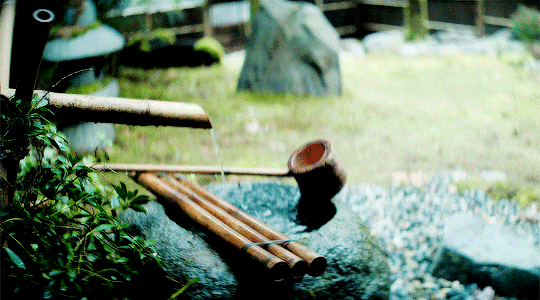
And I hope our little fandom on here remembers this show as a special time, where we came together to talk about something we loved. I'll miss you all.
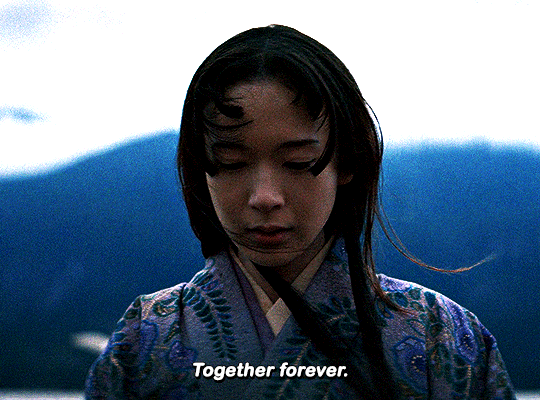
#shōgun#shogun#shogun fx#toda mariko#john blackthorne#anjin#adaptationsdaily#perioddramasource#hiroyuki sanada#yoshii toranaga#akechi mariko#history#history lesson#japan#world war ii#japanese culture#tokugawa ieyasu#hosokowa gracia#william adams#sengoku jidai#writer stuff#book adaptation#women in history#social history#period drama
84 notes
·
View notes
Text
II's Solo.
(Source - the amazing makmdean)
#sleep token#ii sleep token#tw flashing lights#teeth of god tour#and vessel uses the stairs! this is from the third so he'd just learned that lesson of jumping
75 notes
·
View notes
Text
Kya: You know, I'm starting to regret showing you how that blender works.
Lin, drinking toast: Why do you say that?
Kya: Because its not made for toast its made for smoothies Lin!
Lin: Well you could have said that in the beginning.
Kya: *Face palms*
#lok#legend of korra#kya ii#lin beifong#kyalin#kya x lin#tlok lin#tlok kya#lgbtq#humor#blender#cooking lessons#fluff#dork#cute dork#legend of korra incorrect quotes#kyalin incorrect quotes
67 notes
·
View notes
Text
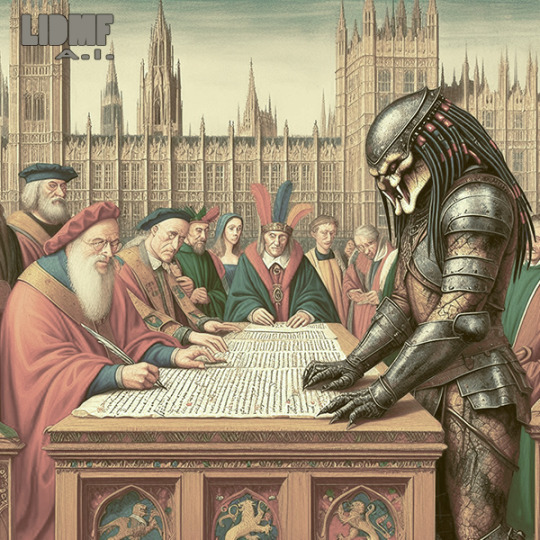
LIDMF AI
"Predator, asistiendo a un acuerdo planetario junto a los representantes del planeta tierra en Flandes, 1412. Este acuerdo implica la libre circulación de Predators en el planeta tierra, así como la obtención de trofeos humanos de cantidad limitada y estipulada en este contrato. Los Predators prometen no destruir el planeta tierra a cambio, con la posibilidad de suministro propio de tecnología alienígena en un futuro"
#history#culture#british museum#archaeology#women in history#history lesson#terror#horror#predator#alien vs predator#avp#predator franchise#the predator#yautja x human#alienvspredator#alienversuspredator#alien versus predator#contract#world war#world war 2#world war ii#world war 1#world war two#world war one#middle ages#medieval art#manuscripts#ancient#13th century#medieval
33 notes
·
View notes
Note
Lowkey hilarious how Ryan wants to gaslight us that Aegon is so complex , grey and tragic 🥺 when all he did was turned him into a mustache-twirling villain 🤭
like there are ways to make aegon ii into an interesting doomed-by-the-narrative character, i know my mutuals have done it. the show *almost* got there with alicent abusing him, but they just didnt lean into it enough. the same problem they have with most things
instead they gave us aegon ii tearfully being like "im trying so hard to be a good son for you and father :(" after getting caught raping a girl. (implied) again. which just made me laugh cause what am i supposed to take from that? that hes lying? cause all theyve shown us is him being a drunk whore. if thats the angle they wanna go with aegon ii then SHOW us that. dont tell us?? the very first lesson of story telling?
#again the hotd problems come down to them being too cowardly to give us f&b alicent#him running away from being king was good but. thats from the book lmao!#almost like... theres some kind of lesson here about adapting books into tv shows....#aegon ii targaryen#asks
24 notes
·
View notes
Text







A completed list of the Hamkids' signatures
#amrev#american history#philip hamilton#alexander hamilton jr#james alexander hamilton#john church hamilton#william stephen hamilton#william s hamilton#eliza hamilton holly#philip hamilton ii#letters#history#hamilchildren#hamilton family#hamilton kids#hamilkids#hamilton children#cicero's history lessons
107 notes
·
View notes
Text
"They placed so much pressure on Sofia to learn how to waltz" Roland isn't good at waltz either. he would not mind if Sofia sucked as much as him.

#he says sorry for stepping on toe btw#this is why we rewatch stf#roland couldn't of prepared sofia for the ball because he's a horrible dancer#do not blame him for not teaching sofia what he cannot do#otherwise make cedric teach sofia how to deadlift#make him break his spine#also it was amber who was sabotaging sofia's lessons that hindered her#she was doing so well in her dance lessons before the trick shoes#even if sofia didn't learn how to waltz after a week she and roland would suck together#they would be dogshit out on the ball floor#but they would be dogshit together#real dads are dogshit dancers with their daughters#stf#sofia the first#sofia the fandom#king roland ii#roland stf#captain txt#all /lh btw#just explodes you with cool roland fact
14 notes
·
View notes
Text
6 notes
·
View notes
Text

27 notes
·
View notes
Text
A Game of Thrones, Arya II
He lifted the sword, held it out between them. “Arya, what did you think to do with this…Needle?
“Who did you hope to skewer? Your sister? Septa Mordane?
“Do you know the first thing about sword fighting?”
All she could think of was the lesson Jon had given her. “Stick them with the pointy end,” she blurted out.
Her father snorted back laughter. “That is the essence of it, I suppose.”
#a game of thrones#arya ii#asoiaf#a song of ice and fire#eddard stark#arya stark#needle#swords#ned stark#sansa stark#septa mordane#jon snow#weapons#weaponry#fighting#lessons#laughter#laughing#house stark#stick them with the pointy end
4 notes
·
View notes
Text
I’m finally learning Japanese :3
こんにちは!
#I’m only on lesson two so I don’t know much and really only romaji words…#had to search up ohayo gozaimasu to find the hiragana (?) for it.#I also know ii tenki desu ne (fine weather isn’t it?)!!
9 notes
·
View notes
Text

Sand sculpture symbolizing the D-Day landing of 1944
#fresh air#artists on tumblr#nature#artwork#life lessons#infinite craft#world war ii#normandy#france#omaha beach#sand#beautiful#amazing#talent#skill#strategy#teamwork#professional#prose
2 notes
·
View notes
Note
what do you think about sunfyre and his bond with aegon
for me it's the only thing i like about aegon lmao , sunfyre was a good loyal dragon who deserved better than to die young and broken
usually I try not to think about it because I see so much discourse about it it's kinda insane 💀
I think all the dragons have bonds with their rider. Syrax-Rhaenyra, Helaena-Dreamfyre, Caraxes-Daemon and all the rest.
in the show we see Syrax react to Rhaenyra's pain while giving birth to Visenya, in the book Dreamfyre senses when Helaena dies. And Sunfyre did admittedly have his moments as well.
When he was making his way to dragonstone Gyldayn believed it was due to a primal instinct for Sunfyre to return to his birthplace. This isn't far stretched because this theory has been seen before about other dragons in f&b pre-dance (for instance the black dread and the rumor he went to old valyria aka his birthplace). On the other hand, in the book it's also suggested Sunfyre might have been able to feel Aegon II's urgent need of him.
Personally I think it might have been a mix of both. Sunfyre was extremely injured and couldn't even fly if I remember correctly so it makes sense that he'd want to be back to his birthplace where he felt most safe. On the opposite, I'm a firm believer of dragons sensing their riders emotions so I won't pretend Aegon being in dragonstone didn't play a role.
If anything he probably wanted both and was lucky they were all in the same place.
The competition I've seen in the fandom about "who has the best bond" is quite ridiculous in my humble opinion because we never get the opportunity to see much of the other dragons with their rider (aside being in a battle)
and because I know my girl Syrax will inevitably catch strays as usual, let me disclaimer. George needed a way to get rid of her because if rhaenyra went to dragonstone with Syrax aegon and his soldiers would be doomed (Sunfyre was way too injured to fight and couldn't fly). And because Rhaenyra had to die George found the quickest, stupidest way to off Syrax so pls leave her alone. Take the anger to that man
Now to bring it back and be controversial (because of course I have to be), a common argument I've seen is how aegon after the war wants to claim another dragon, a "better" Sunfyre. Is he a bit of a bitch about this? yes. But also consider the fact that dragons are a symbol of power, I don't think him wanting another dragon means he didn't give a fuck about Sunfyre, rather he had become disabled, slowly paranoid with whom he could trust and who is better and more powerful to have on your side than a dragon?
#ask reply#aegon ii targaryen#canon aegon ii targaryen#I know I brought up the birth scene as an example but the post is mostly about f&b#also to defend Syrax 'cause my boo is always in discourses#Joffrey was DUMB for trying what he did with Syrax. Did he pay no attention to his valerian lessons?#“but Silver he was a child” yeah and a dumb one.#he wanted to save the dragons. Kudos for that. But after all the shit is happening you'd expect to find a better way than this 💀#again. I blame it on George. He didn't want rhaenyra to fight in the sky but he also wanted Syrax to magically disappear#anyways I'm team black here so I can't help defending them but it's genuinely dumb the stretch I see ppl do to claim that Sunfyre and aegon#didn't have a bond like every single rider/dragon did
7 notes
·
View notes
Note
this ask blog makes me wonder id oj pays his taxes or makes the contestants pay rent
*Taco is oddly compelled to try and speak. Try as she might her mind and body don't quite work together. In the end she can only blurt:*
"Taxes?!"
*Everyone stares*
(Oj has canonicaly been arrested. Adam said it's for tax fraud. So no. Also in the exit interview Oj was said to not charge rent.)
#lunar mod#Lunar asked me to answer and I came running!#After driving lessons though.#taco ii#ask taco ii#osc#inanimate insanity#Feel free to fix tags if I broke em#-DB
2 notes
·
View notes